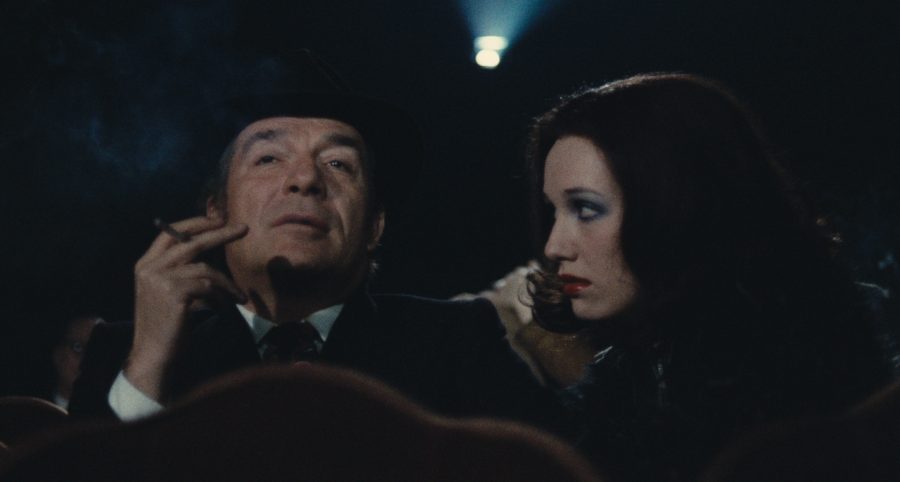Available on Blu-Ray now
With a title directly referring to Proudhon’s famous anarchist maxim, it’s obvious that Elio Petri’s film will be overtly political. In fact, so obsessed with the message does the director become, that he crushes all life and coherence from the experience, leaving it a sometimes stultifying and interminable affair with occasional flashes of surreal black comedy.
Total (Flavio Bucci) is a lowly junior accountant at a bank, despite his alarming allergy to hard cash. Indicative of his feelings towards capitalism, the callow clerk turns his attentions to crime after witnessing an attempted bank robbery. Styling himself a ‘Mandrakian-Marxist’, dedicated to stealing only the possessions of his victims in order to liberate them from their burden; so that they’re no longer ‘owned’ by their property. Total’s main target is a man known only by his profession, The Butcher (Ugo Tognazzi), a particularly boorish and loathsome epitome of the worst excesses of capitalism, in Total’s eyes at least.
Total steals the butcher’s knife, his hat, and finally his girlfriend Anita (Daria Nicolodi), the latter both emotionally and through literal kidnap. Despite a spirited performance from Nicolodi, Anita is the most difficult part of the film to swallow. Seen as a possession as much as the jewellery he adorns her with, The Butcher’s treatment of her is not improved upon by Total. Suffering a series of physical and sexual assaults, Petri obviously aims to present her as a complex figure with mysterious motivations, yet she merely comes across as passive to the point of demonstrating complicity in her own abuses. Along with the other excesses, this leaves as nasty an itch on the viewer’s skin as money does on Total’s, although it’s not a unique attitude among Italian cinema of the period.
Property Is No Longer a Theft is not completely without merit. There are some nice moments of weirdly Buñuelian farce, punctuated with a breathy, avant-garde score from the maestro Ennio Morricone that almost feels like it anticipated Harry Manfredini’s memorable work on Friday the 13th. The message that organised crime is another cog in the capitalist wheel – benefitting insurance companies and perpetuating aggressive consumption – is interesting one. Why steal if the property itself isn’t inherently desirable? Sadly, Petri never stops hectoring for long enough to make the film as interesting as it could be, perhaps ensuring his film won’t be becoming the future property of too many people.


Comments